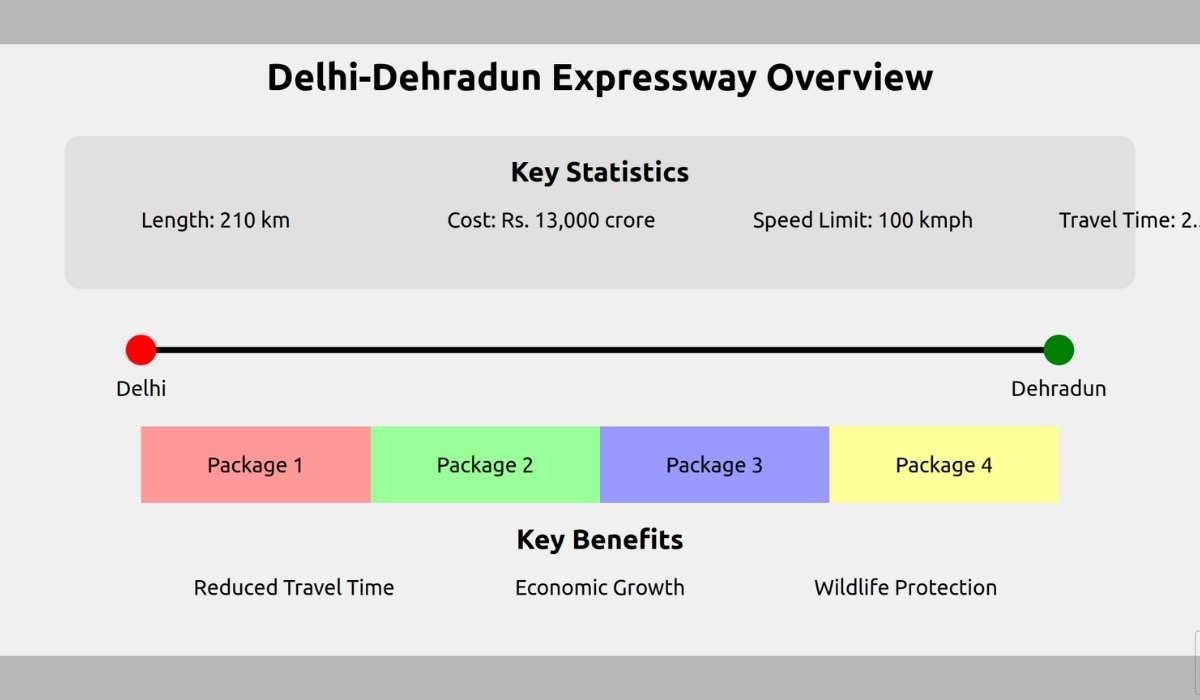Investing in real estate in tier 2 and tier 3 cities in India has become an increasingly attractive option for property buyers. With the economic growth and development of smaller cities, major builders who once focused on metro cities are now investing in these smaller cities. From January 2022 to October 2023, 44% of the land purchased by builders was in tier 2 and tier 3 cities. However, the abundance of options can create confusion, making it challenging to decide which city offers the best investment opportunities.
Why Investing in Tier 2 or Tier 3 Cities?
In the past 20 years, many cities have seen significant returns in real estate, with property prices skyrocketing to levels that middle-class individuals find unaffordable. To avoid repeating past mistakes and missing out on lucrative opportunities, many people are now aggressively seeking investment opportunities in smaller cities.
Benefits of Investing in Tier 2 and Tier 3 Cities
- Affordable Property Prices: Property prices in tier 2 and tier 3 cities are significantly lower than in metros, making them more accessible to a wider range of investors.
- Higher Growth Potential: These cities are experiencing rapid development, leading to potential high returns on investment.
- Government Incentives: The government is actively promoting the development of smaller cities through various schemes and incentives, making them attractive for real estate investment.
- Improved Infrastructure: Increasing infrastructure development in these cities, including better connectivity and amenities, is enhancing their appeal.
- Diversified Investment Opportunities: Investors can explore a variety of real estate options, including residential plots, apartments, and commercial properties.
How to Shortlist Cities for Investment
The first step in the process involves shortlisting potential cities for investment. Here are some key factors to consider:
Political Factors
Politically important cities, like state capitals or the constituency of the Chief Minister, often see higher real estate growth. The development of infrastructure is typically better in these cities, and as politicians and bureaucrats often prefer to invest in real estate, the growth potential is high.
Economic Factors
Economically strong cities often have improved social and public infrastructure. The population and income level increase when there are ample employment opportunities, fueling the demand for property and driving up prices. Cities with emerging industries, special economic zones (SEZs), and business hubs are particularly attractive.
Connectivity
Cities with good air connectivity or road connectivity to major metros are more likely to grow. The presence of highways, airports, and public transportation can significantly enhance the attractiveness of a city for investment.
Unlock Your Dream Home Today!
Get personalized real estate insights delivered straight to your inbox.
Social Infrastructure
Cities with robust social infrastructure, including schools, hospitals, and recreational facilities, are more desirable for residents and hence, for investors. Quality social infrastructure contributes to the overall development and appeal of a city.
Selecting a City for Investment
After shortlisting potential cities, the next step is selecting the best city for investment. Here are some crucial selection factors:
Educational Institutes
Cities with a plethora of educational institutes, especially those with top-ranking colleges, are often good choices. These cities attract students who often choose to stay and work in the same cities after graduation, contributing to the population and demand for property.
New Locality Development
If a new locality or hub is being developed in a city, it indicates that the city is growing, making it an attractive investment option. Look for government and private sector initiatives that signal upcoming development.
Employment Opportunities
Cities with growing employment opportunities, particularly in sectors like IT, manufacturing, and services, tend to attract a steady influx of professionals. This population growth supports real estate demand and price appreciation.
Lifestyle and Amenities
Cities offering a high quality of life with access to modern amenities, shopping centers, entertainment options, and green spaces are more likely to see sustained real estate demand.
Choosing the Right Property Type and Location
When deciding where to buy a property, the general rule is to choose a location where you can easily manage the property. This could be your hometown, a city you frequently travel to for work, or cities near the metro city where you live.
Types of Properties to Consider
- Residential Plots: Land or plots are evergreen options that often appreciate in value over time.
- Apartments: Suitable for rental income and resale, apartments in well-located areas can be a profitable investment.
- Commercial Properties: Shops in local markets can provide good rental income, and commercial office spaces in business hubs can yield high returns.
Avoiding High-Risk Investments
Commercial office spaces or malls should be avoided, especially for beginners, as these types of properties require more experienced investors and entail higher risks.
Real-World Application and Case Studies
Case Study 1: Investment in Indore
Mr. Rajesh, a middle-class investor, decided to invest in Indore, a tier 2 city known for its educational institutions and growing IT sector. He purchased a residential plot in a developing area at an affordable price. Over the next five years, the value of his plot appreciated by 50% due to infrastructure developments and the influx of professionals. Mr. Rajesh later sold the plot, realizing substantial profits.
Case Study 2: Investment in Kochi
Ms. Ananya, a first-time investor, chose Kochi, a tier 2 city with excellent connectivity and a booming real estate market. She invested in a newly launched apartment project located near the city’s IT hub. Within three years, the property value increased by 40%, driven by the area’s growth and increasing demand for residential spaces. Ms. Ananya decided to hold the property for rental income, benefiting from the steady demand.
Dos and Don’ts of Investing in Tier 2 and Tier 3 Cities
Dos
- Conduct Thorough Research: Investigate the developer’s reputation, project details, and market trends.
- Legal Due Diligence: Verify all legal approvals, land titles, and compliance with regulations.
- Evaluate Location: Choose locations with high growth potential and good infrastructure.
- Flexible Payment Plans: Opt for payment plans that suit your financial capacity and investment goals.
- Professional Advice: Consult real estate experts for guidance and market insights.
Don’ts
- Avoid Unverified Developers: Steer clear of developers with a dubious track record or unresolved legal issues.
- Ignore Legal Checks: Never skip legal due diligence to avoid future disputes and delays.
- Neglect Market Trends: Stay updated with market trends to make informed investment decisions.
- Overstretch Finances: Do not opt for payment plans that strain your financial resources.
- Rush Decisions: Take your time to evaluate all aspects of the investment before committing.
Conclusion
Investing in real estate in tier 2 and tier 3 cities can yield significant returns and provide excellent future living options. However, identifying the right city for investment is crucial. Conduct thorough research, consider the factors discussed, and make informed decisions to prosper from your investments.
Remember, real estate investment is not just about purchasing a property; it’s about making an investment that will yield high returns in the future. Stay updated with market trends, make informed decisions, and watch your investment grow.
By following the insights and guidelines provided in this comprehensive guide on investing in real estate in tier 2 and tier 3 cities, you can maximize your returns and secure a valuable asset for the future. Whether you are a seasoned investor or a first-time buyer, understanding the nuances of real estate investments in smaller cities can help you make informed and profitable decisions. Happy investing!
Investing in tier 2 and tier 3 cities offers affordable property prices, higher growth potential, government incentives, improved infrastructure, and diverse investment opportunities.
Key factors include political importance, economic strength, connectivity, and social infrastructure, which can influence real estate growth.
Consider residential plots, apartments, and commercial properties. Residential plots are evergreen, while apartments can provide rental income and resale potential.
Avoid commercial office spaces or malls, especially as a beginner, as these require more experience and come with higher risks.
Dos include conducting thorough research and verifying legal approvals. Don'ts include ignoring legal checks and rushing decisions.
Look for cities with educational institutes, new locality development, growing employment opportunities, and a high quality of life with modern amenities.
The government promotes the development of smaller cities through various schemes and incentives, making them more attractive for real estate investment.
Mr. Rajesh invested in Indore, purchasing a residential plot that appreciated by 50% over five years, driven by infrastructure developments and a growing population.
Research the developer’s reputation, project details, market trends, and legal compliance to ensure a sound investment.
Apartments in well-located areas are typically suitable for rental income, especially if they are near employment hubs and amenities.
DISCLAIMER
The information provided on this website is for general informational purposes only. While we strive to keep the content up-to-date and accurate, we make no representations or warranties of any kind, express or implied, about the completeness, accuracy, reliability, suitability, or availability of the information, products, services, or related graphics contained on this website.
In no event will we be liable for any loss or damage including without limitation, indirect or consequential loss or damage, or any loss or damage whatsoever arising from loss of data or profits arising out of, or in connection with, the use of this website.
Real Estate Investment Risks
Real estate investments involve significant risks and market volatility. Property values, rental rates, and market conditions can fluctuate. Past performance is not indicative of future results.
Before Making Real Estate Decisions
Before making any real estate decision, we strongly advise you to:
- Conduct thorough due diligence
- Consult with qualified legal, financial, and real estate professionals
- Carefully review all relevant documents and contracts
- Consider your personal financial situation and investment goals
This website does not provide legal, financial, or investment advice. All content is for informational purposes only and should not be construed as professional advice or recommendations.
By using this website, you acknowledge and agree to these terms. We reserve the right to modify this disclaimer at any time without notice.







